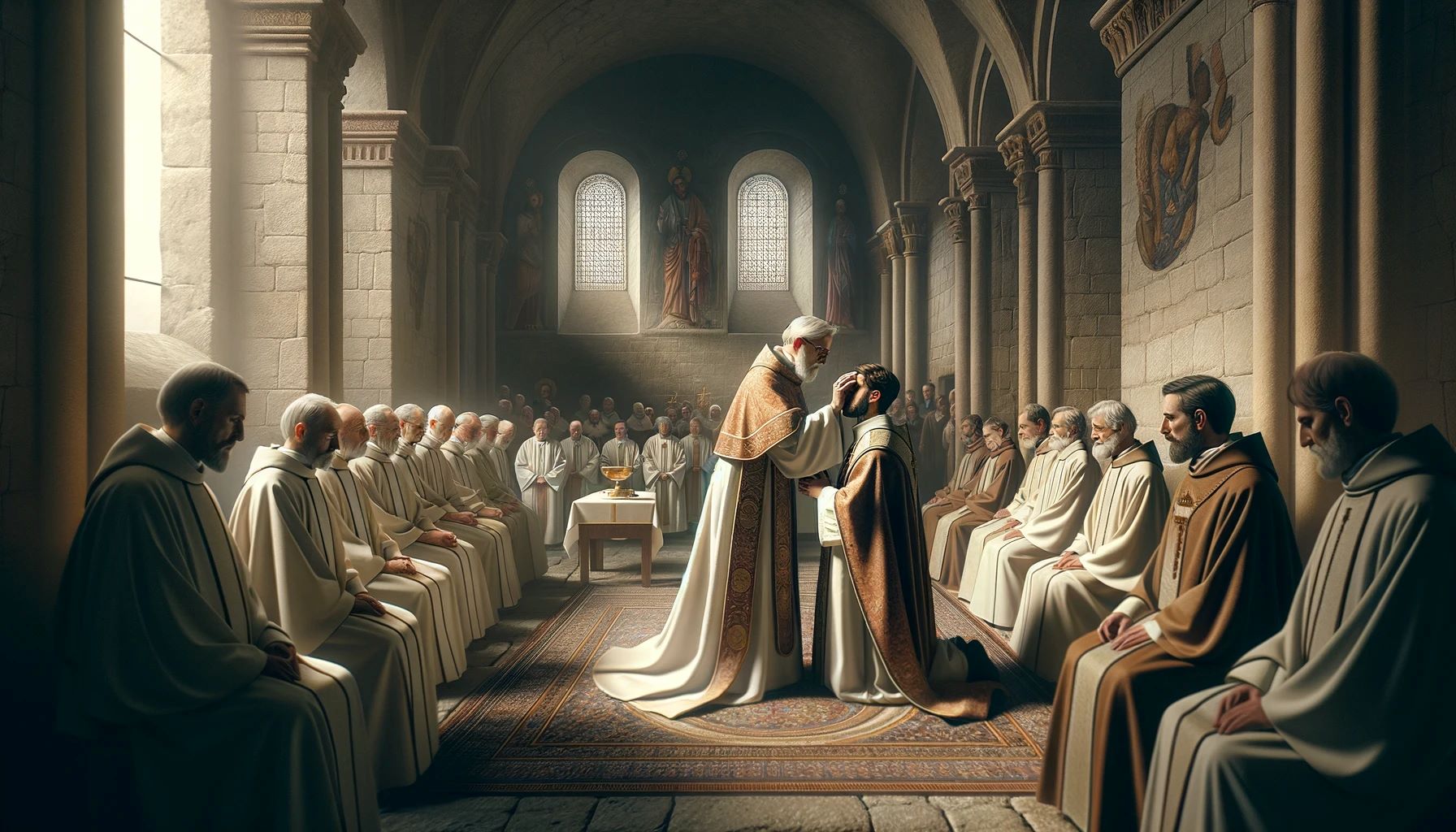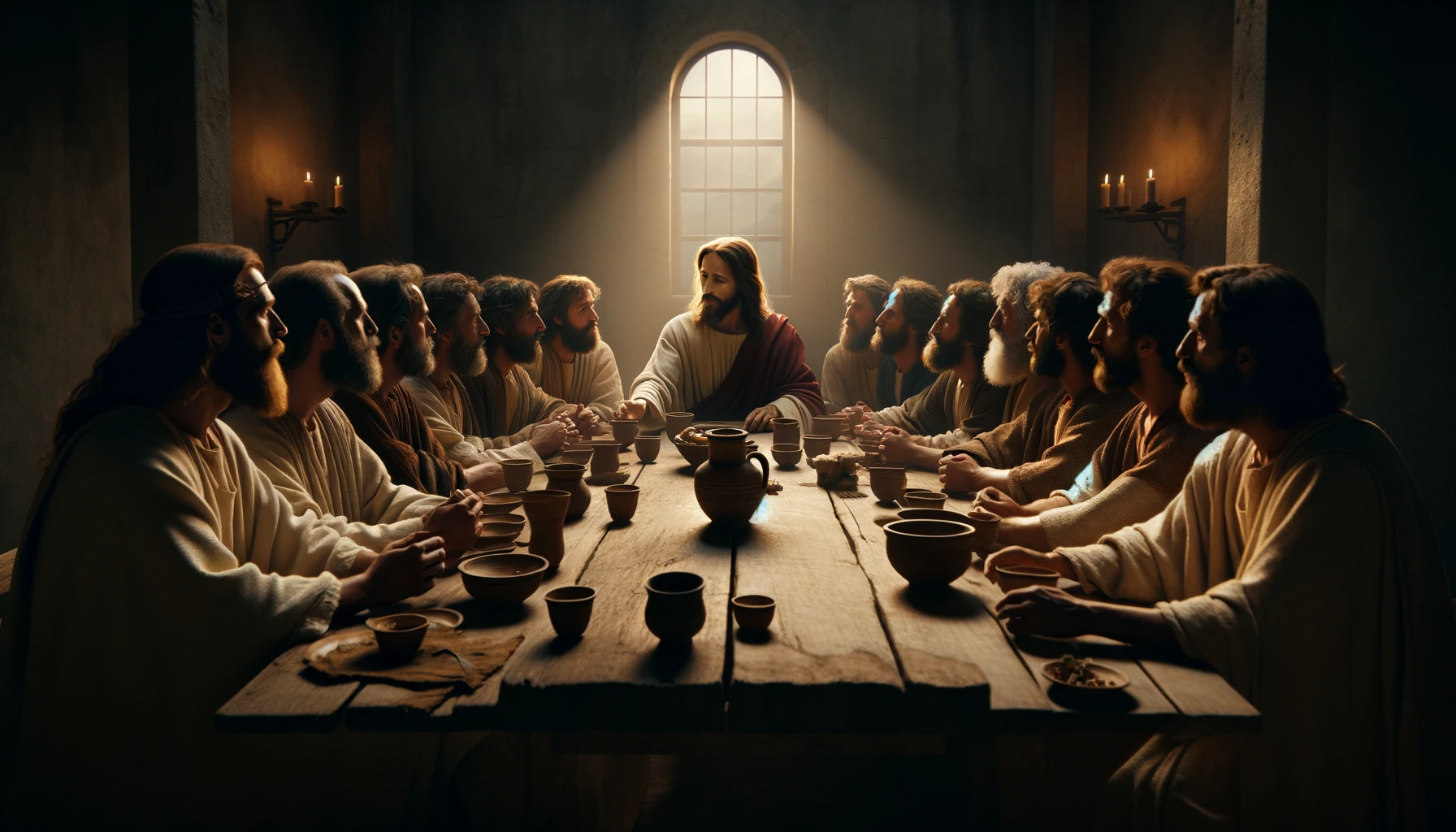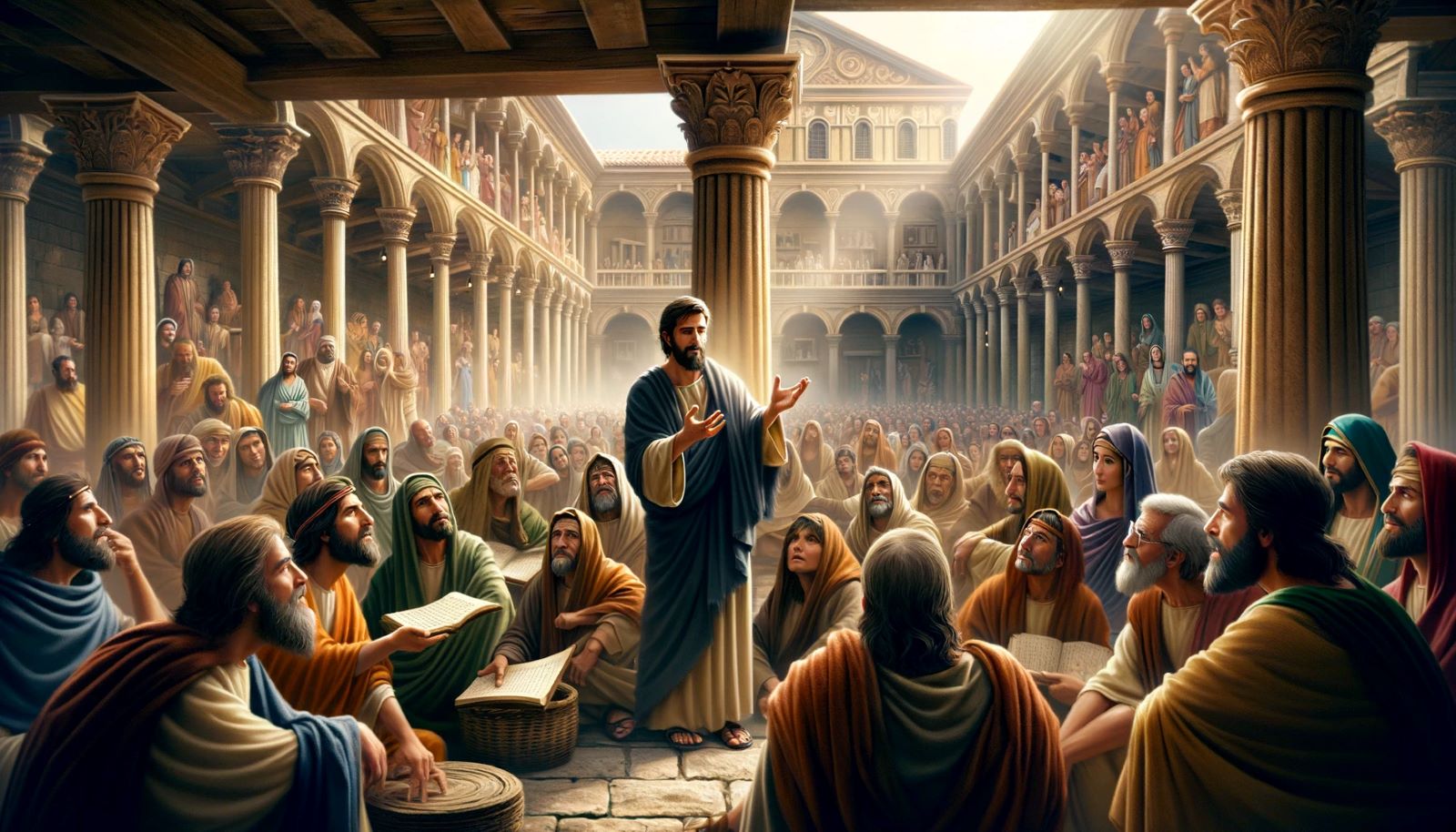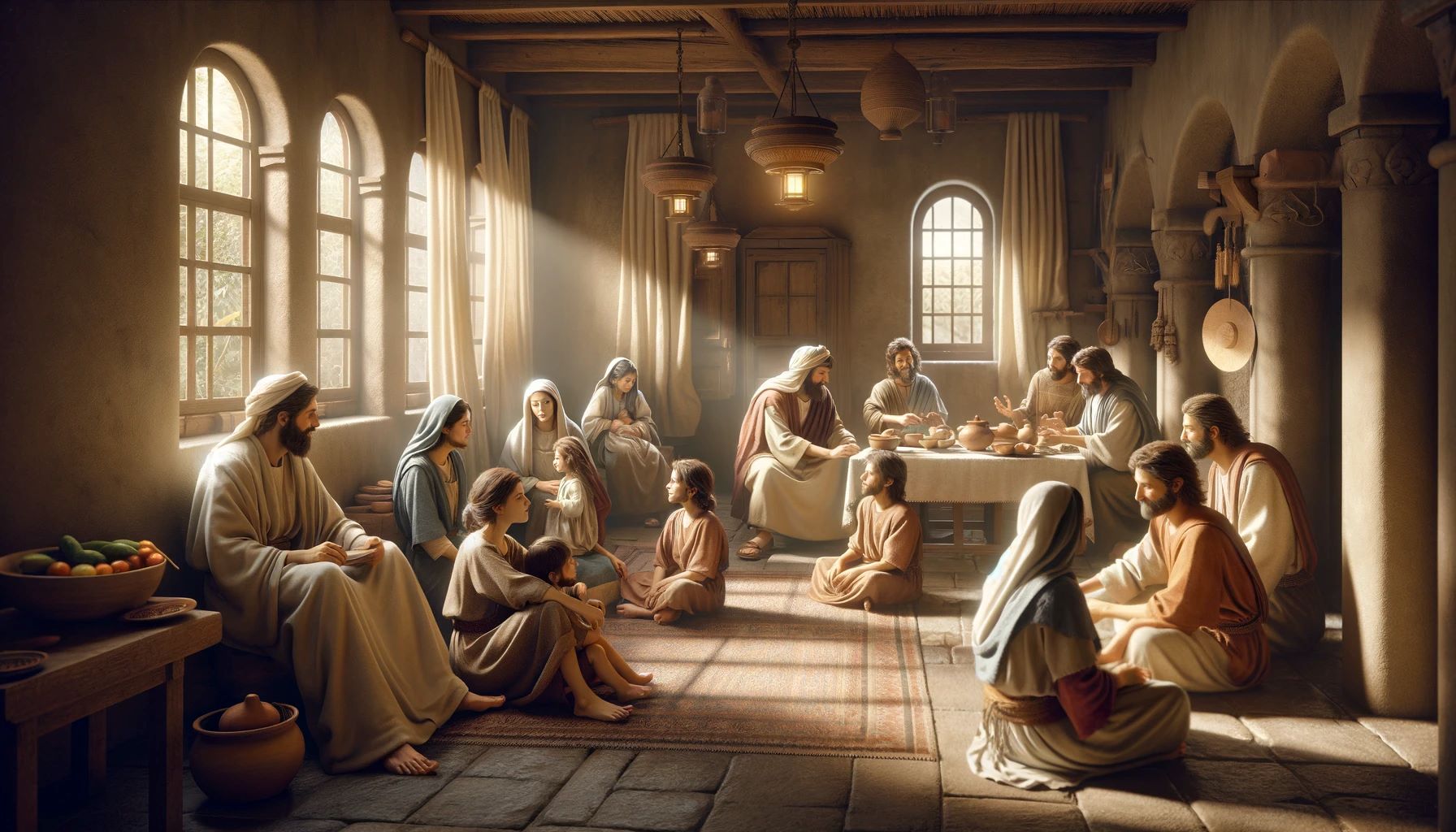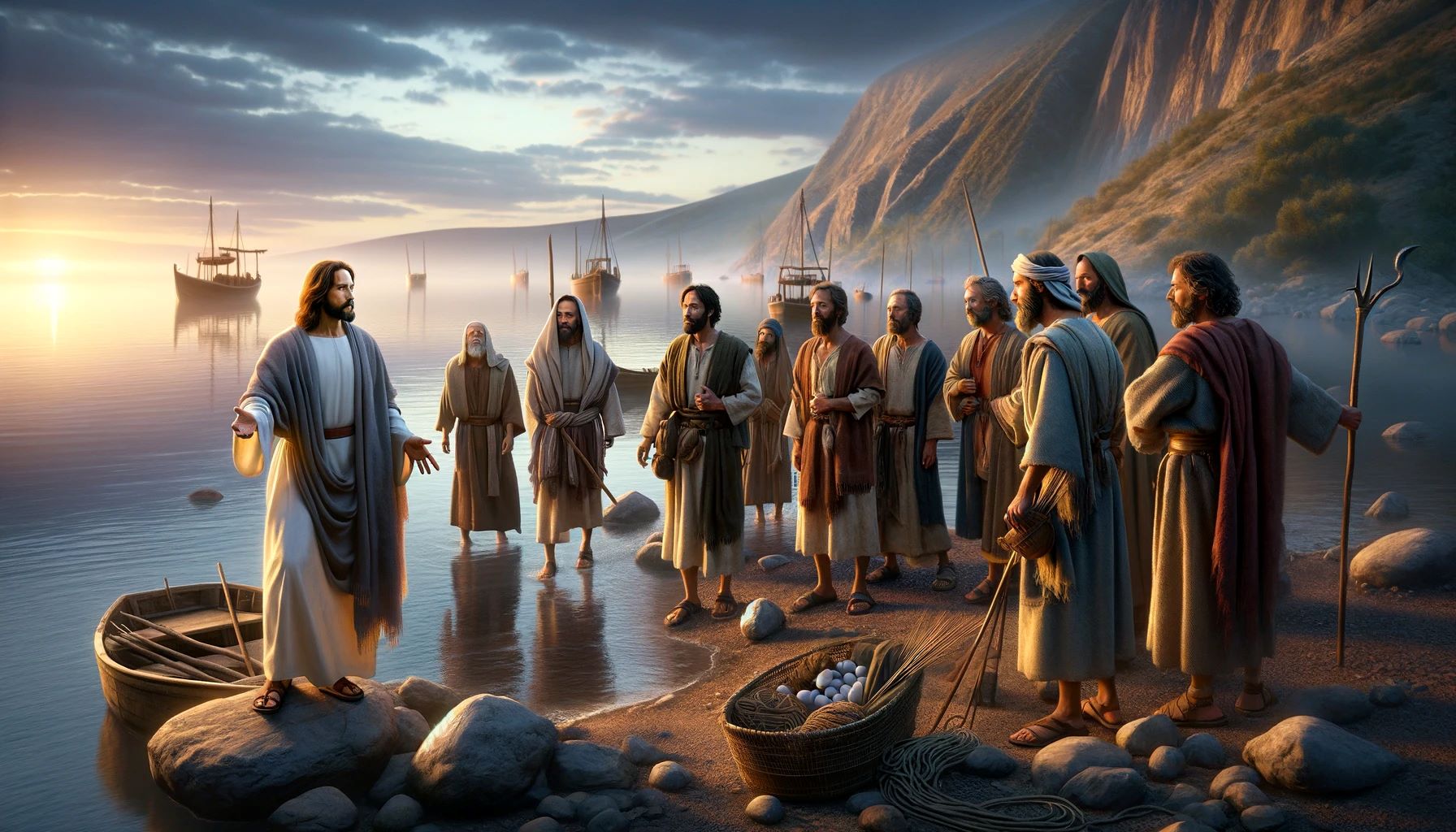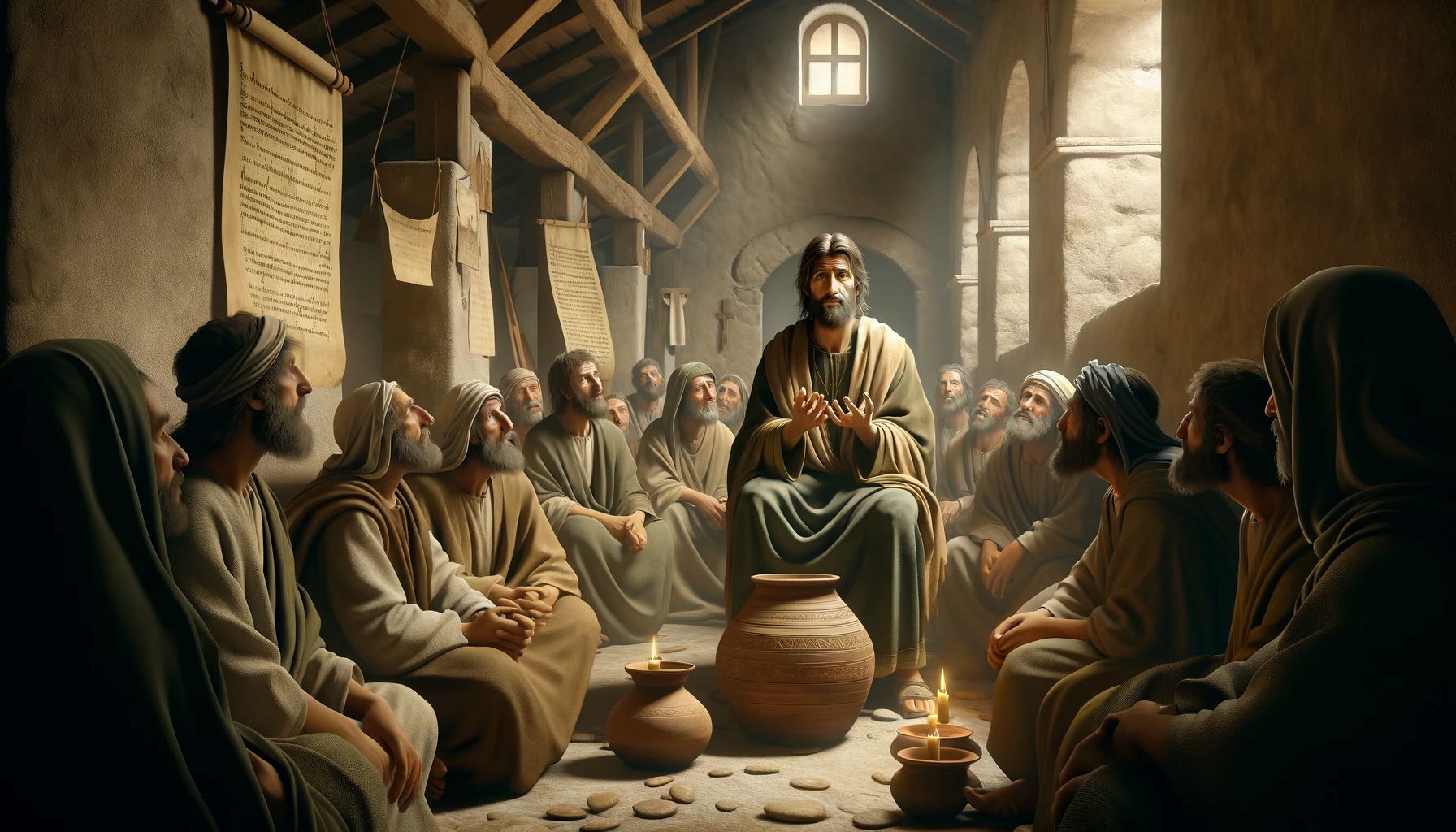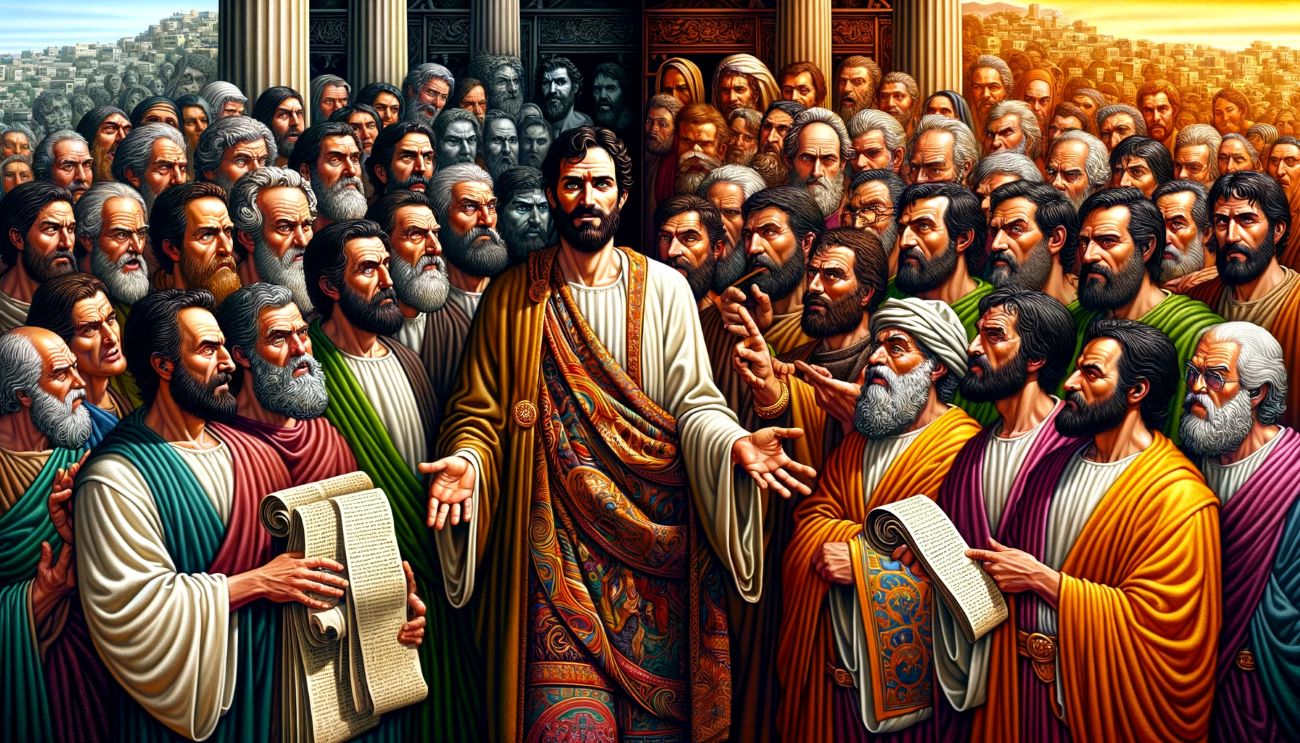Home>Bible Facts>What Apostles Were At The Last Supper
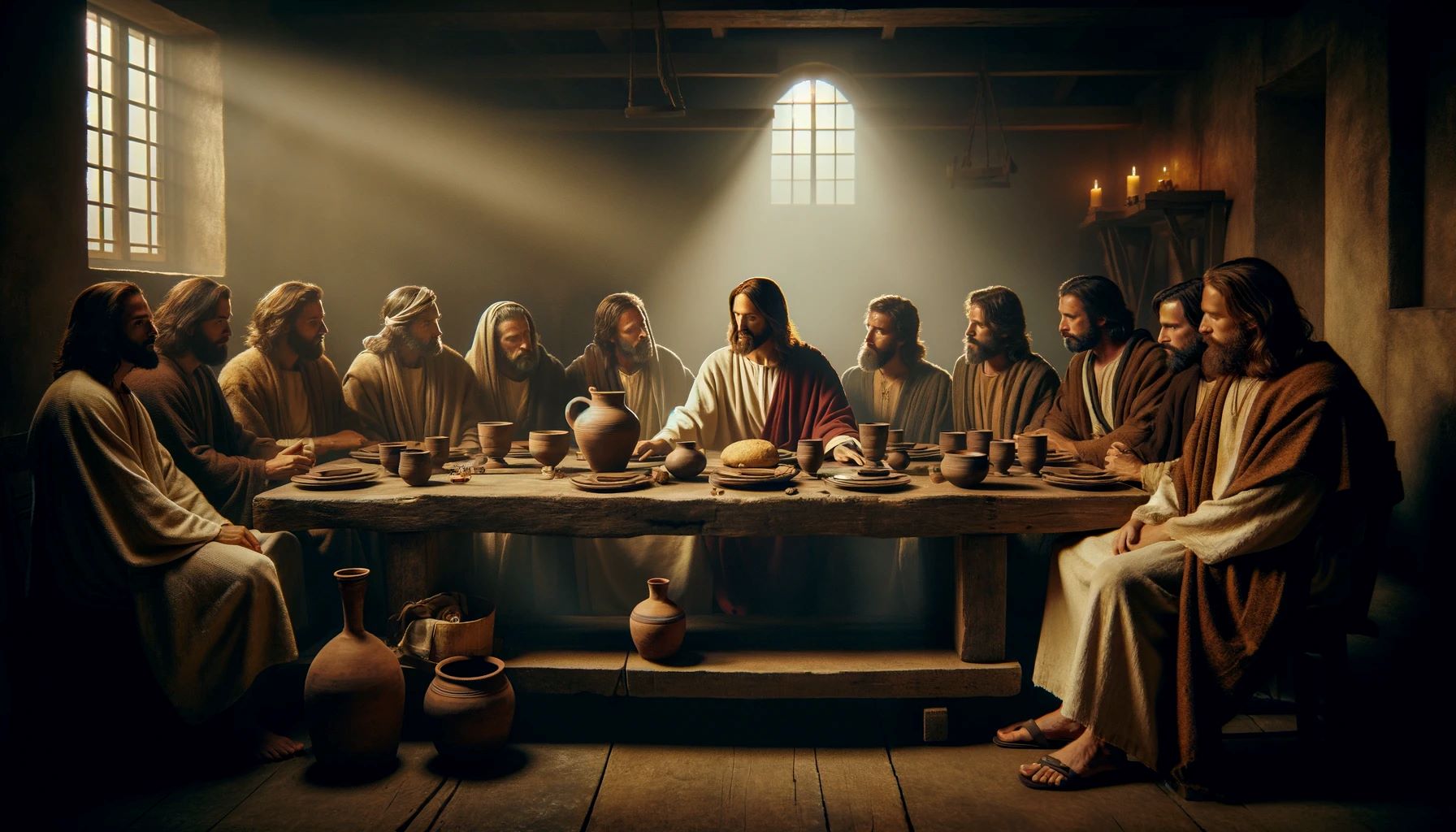

Bible Facts
What Apostles Were At The Last Supper
Published: February 19, 2024
Peter Smith, Editorial Director at Christian.net, combines deep insights into faith, politics, and culture to lead content creation that resonates widely. Awarded for his contributions to religious discourse, he previously headed a major organization for religious communicators, enhancing dialogue on faith's societal impacts.
Discover fascinating Bible facts about the apostles present at the Last Supper. Learn about their significance in this iconic event. Explore more with us!
(Many of the links in this article redirect to a specific reviewed product. Your purchase of these products through affiliate links helps to generate commission for Christian.net, at no extra cost. Learn more)
Table of Contents
Introduction
The Last Supper is a pivotal event in the Christian faith, symbolizing the final meal that Jesus shared with his twelve apostles before his crucifixion. This sacred gathering holds immense significance, as it marks the institution of the Holy Eucharist, a central sacrament in Christianity. The identities of the apostles present at this momentous occasion are deeply ingrained in biblical history, offering profound insights into the foundations of the Christian faith.
As we delve into the accounts of the Last Supper, we are presented with a compelling narrative that transcends time and continues to resonate with believers worldwide. The presence of the twelve apostles at this historic gathering underscores the profound bond they shared with Jesus and the integral roles they played in spreading his teachings.
The Last Supper serves as a poignant reminder of the selfless love and sacrifice exemplified by Jesus, who humbly washed the feet of his disciples and imparted timeless lessons of servanthood and humility. This act of profound humility and love set the stage for the events that would unfold in the hours and days following the Last Supper, ultimately culminating in the crucifixion and resurrection of Jesus Christ.
As we embark on a journey to explore the identities of the apostles present at the Last Supper and the profound significance of this sacred gathering, we are invited to reflect on the enduring impact of this moment in shaping the Christian faith. The Last Supper stands as a testament to the enduring legacy of Jesus and his apostles, inspiring believers to embrace the values of love, compassion, and unity that were exemplified on that fateful evening.
In the subsequent sections of this article, we will delve into the lives of the twelve apostles, unravel the identities of those present at the Last Supper, and explore the profound implications of this transformative event in Christian history. Through this exploration, we will gain a deeper understanding of the enduring legacy of the Last Supper and its profound significance in the tapestry of Christian faith.
The Twelve Apostles
The Twelve Apostles hold a revered place in Christian history, symbolizing the chosen disciples who were entrusted with spreading the teachings of Jesus Christ to the world. According to the Gospels of Matthew, Mark, and Luke, Jesus handpicked twelve individuals to serve as his closest companions and emissaries, imparting profound spiritual wisdom and empowering them to carry forth his message of love and redemption.
These twelve apostles, also referred to as disciples, played a pivotal role in the ministry of Jesus, witnessing his miracles, receiving his teachings, and experiencing firsthand the transformative power of his presence. Their diverse backgrounds and personalities reflected the universal appeal of Jesus' message, transcending societal boundaries and embracing individuals from varied walks of life.
The names of the Twelve Apostles are ingrained in the annals of Christian tradition, each bearing unique qualities and contributions to the spread of the Gospel. The roster includes Peter, Andrew, James the Greater, John, Philip, Bartholomew, Thomas, Matthew, James the Lesser, Thaddeus, Simon the Zealot, and Judas Iscariot.
These apostles hailed from diverse vocations, ranging from fishermen and tax collectors to zealots and individuals of varying social standings. Their collective calling to serve alongside Jesus underscored the inclusive nature of his ministry, transcending societal norms and embracing individuals from all walks of life.
The Twelve Apostles bore witness to the profound teachings of Jesus, experiencing firsthand the transformative impact of his words and actions. Their unwavering commitment to his mission, despite facing adversity and societal opposition, exemplifies the depth of their faith and dedication to spreading the message of salvation.
As we delve into the lives of the Twelve Apostles, we are presented with a mosaic of human experiences, reflecting the universal appeal of Jesus' teachings and the timeless relevance of his message. Their collective journey serves as a testament to the enduring impact of Jesus' ministry and the pivotal role they played in shaping the foundations of the Christian faith.
The legacy of the Twelve Apostles continues to resonate with believers worldwide, inspiring individuals to embrace the values of faith, compassion, and unwavering dedication to the teachings of Jesus Christ. Their enduring influence serves as a beacon of hope and guidance, inviting believers to reflect on the profound impact of their collective witness and steadfast commitment to the Gospel.
The Twelve Apostles stand as enduring symbols of faith, resilience, and unwavering devotion to the transformative message of Jesus Christ, leaving an indelible mark on the tapestry of Christian history and inspiring generations to embrace the timeless truths they espoused.
The Identity of the Apostles at the Last Supper
The Last Supper, a momentous event in Christian history, holds profound significance as the final meal that Jesus shared with his twelve apostles before his crucifixion. The identities of the apostles present at this sacred gathering offer a compelling glimpse into the intimate circle of disciples who bore witness to the transformative teachings and acts of Jesus Christ.
According to the Gospels of Matthew, Mark, and Luke, the apostles present at the Last Supper included Peter, Andrew, James the Greater, John, Philip, Bartholomew, Thomas, Matthew, James the Lesser, Thaddeus, Simon the Zealot, and Judas Iscariot. These chosen companions of Jesus represented a diverse array of backgrounds and personalities, reflecting the universal appeal of his message and the inclusive nature of his ministry.
Peter, often regarded as the leader of the apostles, played a central role in the events of the Last Supper. His unwavering devotion to Jesus and his pivotal role in the early Christian church underscore the profound impact of his presence at this sacred gathering. Alongside Peter, the other apostles formed a close-knit circle that bore witness to the poignant moments that unfolded during the Last Supper.
The Last Supper served as a poignant culmination of Jesus' ministry, as he imparted profound teachings and engaged in symbolic acts that would reverberate throughout Christian history. The apostles present at this gathering were entrusted with preserving the legacy of this transformative event and carrying forth the message of love and redemption that permeated the teachings of Jesus.
The presence of the apostles at the Last Supper underscores their integral role in the unfolding narrative of Jesus' life and mission. Their collective witness to the events of that fateful evening served as a testament to their unwavering commitment to the teachings of Jesus and their pivotal role in shaping the foundations of the Christian faith.
As we reflect on the identities of the apostles at the Last Supper, we are invited to contemplate the profound significance of their presence at this sacred gathering. Their collective witness stands as a testament to the enduring legacy of Jesus and the transformative impact of his ministry, inspiring believers to embrace the timeless truths embodied in the Last Supper.
The identities of the apostles at the Last Supper serve as a poignant reminder of the profound bond they shared with Jesus and the pivotal role they played in preserving the legacy of his teachings. Their presence at this historic gathering encapsulates the enduring impact of their collective witness and the timeless relevance of the Last Supper in the tapestry of Christian faith.
Judas Iscariot and His Betrayal
Judas Iscariot, one of the twelve apostles chosen by Jesus, is indelibly linked to the tragic events surrounding the Last Supper. His name has become synonymous with betrayal, embodying the profound complexities of human frailty and the consequences of succumbing to temptation. Judas' role in the events leading to the crucifixion of Jesus serves as a poignant reminder of the enduring impact of his actions and the profound implications of his betrayal.
The Gospels depict Judas Iscariot as a trusted disciple of Jesus, entrusted with the responsibility of managing the finances of the group. Despite sharing in the intimate circle of the apostles and witnessing the transformative teachings and miracles of Jesus, Judas' inner turmoil and moral conflict culminated in a fateful decision that would reverberate throughout history.
The betrayal of Jesus by Judas Iscariot unfolded during the Last Supper, a poignant and sacred gathering that marked the institution of the Holy Eucharist. According to the Gospel of Matthew, Judas made a pact with the chief priests to betray Jesus for thirty pieces of silver, a symbolic and tragic exchange that would ultimately lead to the apprehension and crucifixion of Jesus.
The act of betrayal perpetrated by Judas Iscariot stands as a sobering testament to the complexities of human nature and the enduring struggle between loyalty and temptation. His decision to betray Jesus, a revered and beloved teacher, embodies the profound consequences of succumbing to greed and moral weakness, serving as a cautionary tale for generations to come.
The tragic outcome of Judas' betrayal serves as a poignant reminder of the far-reaching implications of his actions, ultimately leading to the arrest, trial, and crucifixion of Jesus. The profound impact of Judas' betrayal underscores the enduring legacy of the Last Supper and the transformative events that unfolded in its wake, shaping the course of Christian history and underscoring the timeless significance of the sacrifice and redemption embodied in the life of Jesus Christ.
Judas Iscariot's betrayal, while shrouded in tragedy and moral complexity, serves as a poignant reminder of the enduring struggle between righteousness and temptation, offering profound insights into the complexities of human nature and the consequences of succumbing to moral frailty. His role in the events surrounding the Last Supper stands as a sobering testament to the enduring impact of his actions and the timeless relevance of his cautionary tale in the tapestry of Christian faith.
The Significance of the Last Supper
The Last Supper holds profound significance in Christian theology and tradition, serving as a pivotal event that encapsulates the essence of Jesus' ministry and the foundational elements of the Christian faith. This sacred gathering, which took place on the eve of Jesus' crucifixion, carries multifaceted significance that resonates deeply with believers worldwide.
At the heart of the Last Supper lies the institution of the Holy Eucharist, a central sacrament in Christianity that symbolizes the spiritual nourishment and communion with the divine. During this poignant gathering, Jesus shared bread and wine with his apostles, imparting profound symbolism that transcends time and space. The act of breaking bread and sharing the cup symbolized the sacrificial offering of Jesus' body and blood, foreshadowing the redemptive sacrifice that would unfold on the cross. This sacred ritual continues to be commemorated in the Eucharistic celebration, serving as a tangible expression of spiritual nourishment and unity within the Christian community.
Furthermore, the Last Supper serves as a poignant demonstration of Jesus' profound humility and love, exemplified through his act of washing the feet of his disciples. This symbolic gesture of servanthood underscored the transformative message of humility and selfless love, challenging societal norms and emphasizing the value of compassionate service to others. The Last Supper thus stands as a timeless embodiment of Jesus' teachings on love, humility, and the call to serve one another with selfless devotion.
The events of the Last Supper also encompass the revelation of Jesus' impending betrayal and the foretelling of his sacrificial death. Amidst the intimate setting of the meal, Jesus shared poignant words with his disciples, preparing them for the trials that lay ahead and imparting profound spiritual truths that would sustain them in the face of adversity. This pivotal moment served as a catalyst for the unfolding narrative of Jesus' crucifixion and resurrection, underscoring the redemptive significance of his ultimate sacrifice and the transformative power of his resurrection.
The Last Supper, therefore, holds enduring significance as a sacred gathering that encapsulates the core tenets of Christian faith – the redemptive sacrifice of Jesus, the institution of the Eucharist, the call to humble service, and the enduring message of love and unity. Its profound impact reverberates through the annals of Christian history, inspiring believers to embrace the timeless truths embodied in this transformative event and to partake in the spiritual communion and service exemplified by Jesus and his apostles.
In essence, the Last Supper stands as a poignant testament to the enduring legacy of Jesus' ministry, inviting believers to partake in the spiritual nourishment and transformative love that emanated from this sacred gathering. Its significance transcends historical chronicles, resonating with the hearts and souls of believers, and serving as a timeless symbol of redemption, unity, and unwavering love.






